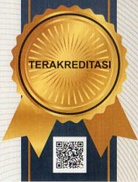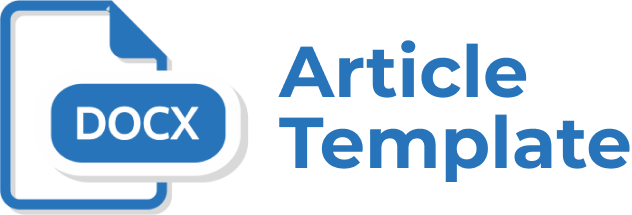Modal Intelektual, Budaya Perusahaan dan Kinerja Keuangan pada Sektor Perbankan Indonesia
Abstract
Keywords
Full Text:
PDFReferences
Allen, M.R., and Wright, P. (2007). Strategic Management and HRM in the Oxford Handbook of Human Resource Management, Boxall, P., Purcell, J., and Wright, P. (eds.). Oxford University Press.
Ariningsih, Endah Pri. (2007). Pengaruh Budaya Organisasi pada Kinerja Perusahaan. Jurnal Segmen-Manajemen hlm.57-63.
Brahmasari, Ida Ayu. (2004). Pengaruh Variabel Budaya Perusahaan terhadap Komitmen Karyawan dan Kinerja Perusahaan Kelompok Penerbitan Pers Jawa Pos, Disertasi Universitas Airlangga, Surabaya.
Brennan, C. and Connell, B. (2000). Intellectual Capital: Current Issues and Policy Implications, Journal of Intellectual Capital Vol. 1.No.3, 206-240.
Cameron, K.S.; J. De Graff; R.E. Quinn; A. Thakor. (2006). Competing Values Leadership: Creating Value in Organisations. Edward Elgar, Cheltenham.
Cameron, Kim S dan Robert E Quinn. (2006). Diagnosing and Changing Oganizational Culture. A Wiley Imprint, San Fransisco.
Chen, M.C., Cheng, S.J., Hwang, Y. (2005). “An empirical investigation of the relationship between intellectual capital and firms’ market value and financial performance”. Journal of Intellectual Capital. Vol. 6 N0. 2. pp. 159-176.
Ciptaningsih, Tri. (2013). Uji Pengaruh Modal Intelektual terhadap Kinerja Keuangan BUMN yang Go Public di Indonesia. Jurnal Manajemen Teknologi Volume 12 Number 3
Clarke, Martin, Dyna Seng, Rosalind H. Whiting. (2011). Intellectual capital and firm performance in Australia. Journal of Intellectual Capital Vol. 12 No. 4. Pp 505-530 (2011). Emerald Griup Publishing Limited.
Djuanda, Vincentius David., dan Tarigan, Josua. (2016). Pengaruh Budaya Organisasi terhadap Kinerja Keuangan melalui Perilaku Manajer atas Isu Manajemen Lingkungan sebagai Variabel Intervening. Bussines Accounting Review vol.4 No.1 hlm.61-72.
Edvinsson, L and Malone, M.S. (1997). Intellectual Capital: Realising Your Company’s True value by Finding Its Hidden Brainpower, Harper Business, New York.
Edvinsson, L. and Malone, M. (1997). Intellectual Capital: Realizing Your Company’s True Value by Finding Its Hidden Brainpower. HarperCollins, New York, NY.
Edward, Janice. Mastering Strategic Management 1St Canadian Edition. (2012). The B.C. Open Textbook Project.
Fiordelisi, Franco dan Ornella Ricci. (2014). Corporate Culture and CEO Turnover. Journal of Corporate Finance 28 (2014) 68-82.
Firer, S and Williams, M. (2003). Intellectual capital and traditional measures of corporate Performance. Journal of Intellectual Capital Vol.4, No.3, 348-60.
Freeman, R. Edward. (2010). Strategic Management: A Stakeholder Approach. Cambridge University Press.
Ghozali, Imam. (2018). Aplikasi Analisis Multivariate dengan Program IBM SPSS 25. Badan Penerbit Universitas Diponegoro.
Goh, P.C. (2005). Intellectual Capital performance of commercial banks in Malaysia, Journal of Intellectual Capital Vol.6, No. 3, 385-396.
Guthrie, J., Petty, R., Ferrier, F. and Well, R. (1999). “There is no accounting for intellectual capital in Australia: review of annual reporting practices and the internal measurement of intangibles within Australian organisations”. Paper presented at the International Symposium Measuring and Reporting Intellectual Capital: Experiences, Issues and Prospects, OECD, Amsterdam, June. Available at: www.oecd.org. (accessed 02 Dec 2006).
Hair Jr., Joseph F.; William C. Black; Barry J. Babin; Rolph E. Anderson. (2014). Multivariate Data Analysis 7th Edition. Pearson New International Edition.
Harrison, S., and Sullivan, P.H. (2000). Profitting form intellectual capital; Learning from leading companies. Journal of Intellectual Capital Vol. 1 No. 1. pp. 33-46.
Hermanto, Bambang., dan Rusdin. (2013). Budaya Organisasi, Penciptaan Nilai, dan Kinerja Organisasi. Bandung: Jurnal Administrasi Bisnis Vol.X, No.2, hlm.2982-2994 Universitas Padjajaran.
Hill, R., and Stewart, J. (2007). Management Development: Perspectives from Research and Practice, London: Routledge.
Huang, C.J., and Liu, C.J. (2005). Exploration for the relationship between innovation, IT and Performance, Journal of Intellectual Capital Vol.6, No.2, 237-252.
IASB (2004). Issues Standards on Business Combinations, Goodwill and Intangible Assets. International Accounting Standards Board.
International Federation of Accountants. (1998). The Measurement and Management of Intellectual Capital. available at: www.ifac.org. (Accessed January 2007).
Joshi, Mahesh; Daryll Cahill; Jasvinder Sidhu. (2013). Intellectual Capital and Financial Performance: an Evaluation of The Australian Financial Sector. Journal of Intellectual Capital Vol. 14 No. 2. Emerald Group Publishing Limited.
Kangarlouei, S. J., Motavassel, M., Azizi, A., & Farahani, M. S. (2012). The investigation of the relationship between dividend policies, cash-flow uncertainty, contributed capital mix and investment opportunities: the case of emerging markets (Tehran Stock Exchange). International Journal of Business and Social Science, 3(2), 172-180.
Kwarteng, Amoako; Felix Aveh. (2018). Empirical examination of organizational culture on accounting information system and corporate performance, Evidence from a developing country perspective. 2018. Meditari Accountancy Research Vol. 26 No. 4, 2018. Emerald Publishing Limited.
Lee, Siew Kim Jean; Kelvin Yu. (2004). Corporate culture and organizational performance. 2004. Journal of Managerial Psychology Vol. 19 No. 4. Emerald Group Publishing Limited.
Lev, B. (2001). Intangibles: Management, and Reporting, Brookings Institution Press. Washington, DC.
Marchini, Pier Luigi; Carlotta D’Este. (2015). Comprehensive income and financial performance ratios: which potential effects on RoE and on firm’s performance evaluation? Procedia Economics and Finance 32 (2015) 1724 – 1739. www.sciencedirect.com
Mondy, Wayne and Noe M. Robert. (1990). Human Resources Management. Fourth Edition. Allyn and Bacon. United States of America.
Naranjo-Valencia, Julia C.; Daniel Jimenez-Jimenez; Raquel Sanz-Valle. (2011). Innovation or imitation? The role of organizational culture. Management Decision Vol. 49 No. 1, 2011 pp. 55-72 q Emerald Group Publishing Limited.
Nurhayati, Enok; Lia Uzliawati. (2017). Intellectual Capital Disclosure Based Stakeholders Pada Perbankan Indonesia. Jurnal Akuntansi Volume XXI No. 03: September 2017: 484 – 496.
O’Reilly, Charles. (1989). Corporations, culture, and commitment: Motivation and social control in organizations. California Manage. Rev. 31, 9–25.
O’Reilly, Charles; David F. Caldwell, Jennifer A. Chatman; Bernadette Doerr. (2014). The Promise and Problems of Organizational Culture: CEO Personality, Culture, and Firm Performance. Group & Organization Management 2014, Vol. 39 (6)
Petty, P. and Guthrie, J. (2000). Intellectual capital literature review: measurement, reporting and management. Journal of Intellectual Capital, Vol. 1 No. 2, pp. 155-75.
Pulic, Ante. (2000). An accounting tool for IC management, Available online: http://www.measuring-ip.at/Papers/ham99txt.htm.
Pulic, Ante. (1998). Measuring the Performance of Intellectual Potential in Knowledge Economy. Presented in 1998 at the 2nd McMaster World Congress on Measuring and Managing Intellectual Capital by The Austrian Team for Intellectual Capital Potential.
Pulic, Ante. (2008). The Principles of Intellectual Capital Efficiency – A Brief Description. 2006. The Economist (2006), Economist Intelligence Unit, pp. 93.
Rakim, Aditya Achmad. (2014). Pengaruh Implementasi Budaya Perusahaan dan Value for Money terhadap Kinerja Perusahaan dengan Pendekatan Balanced Score Card: Corporate Governance sebagai Variabel Moderating. Serang: Skripsi Fakultas Ekonomi Jurusan Akuntansi Universitas Sultan Ageng Tirtayasa.
Rashid, Sambasivan; Murali Sambasivan; Juliana Johari. (2003). The influence of corporate culture and organizational commitment on performance. Journal of Management Development. Vol. 22, No. 8, pp. 708- 728.
Riahi-Belkaoui, A. (2003). Intellectual Capital and firm performance of US multinational firms: study of the resource-based and stakeholder views. Journal of Intellectual Capital Vol.4, No.2, 215-26.
Samiloglu, Famil;Ali Osman Oztop; Yunus Emre Kahraman. (2017). The Determinants of Firm Financial Performance: Evidence From Istanbul Stock Exchange (BIST). IOSR Journal of Economics and Finance (IOSR – JEF) Volume 8, Issue 6 Ver. I (Nov.- Dec .2017), PP 62-67 www.iosrjournals.org.
Schein, Edgar H. (2004). Organizational Culture and Leadership (Third Edition). A Wiley Imprint. San Fransisco, CA.
Shiu, H. (2006). The application of the Value Added Intellectual Coefficient to Measure Corporate Performance: Evidence from Technological Firms. International Journal of Management Vol.23, No.2, 356-365.
Siagian, Sondang P. (2002). "Fungsi Fungsi Manajerial." Jakarta: Bumi Aksara
Sørensen, J.B. (2002). The strength of corporate culture and the reliability of firm performance. Adm. Sci. Q. 47 (1), 70–91
Stewart, T.A. (1997). Intellectual Capital: The Wealth of New Organisations, Nicholas Brealey Publishing: London.
Sullivan Jr., P.H. and Sullivan Sr, P.H. (2000). Valuing intangible companies, an intellectual capital approach. Journal of Intellectual Capital Vol. 1 No. 4. pp. 328-340.
Sutanto, Natalia. I Gede Siswantaya. (2014). Pengaruh Modal Intelektual Terhadap Kinerja Perusahaan pada Perusahaan Perbankan yang Terdaftar di Bursa Efek Indonesia. MODUS Vol. 26 (1): 1-17
Sveiby, K.E. (1997). The New Organisational Wealth: Managing and Measuring Knowledge Based Assets. Berrett-Koehler. San Francisco, CA.
Ulum, Ihyaul MD. (2008). Intellectual Capital Performance Sektor Perbankan di Indonesia. Jurnal Akuntansi dan Keuangan, Vol. 10, No. 2, November 2008: 77-84.
Zhao, Hailin., Teng, Haimeng., Wu, Qiang. (2018). The effect of corporate culture on firm performance: Evidence from China. China Journal of Accounting Research 11 pp.1-19.
DOI: https://doi.org/10.32487/jshp.v3i1.553
Refbacks
- There are currently no refbacks.
JSHP: Jurnal Sosial Humaniora dan Pendidikan
is licensed under a Creative Commons Attribution-ShareAlike 4.0 International License (CC BY-SA 4.0)



